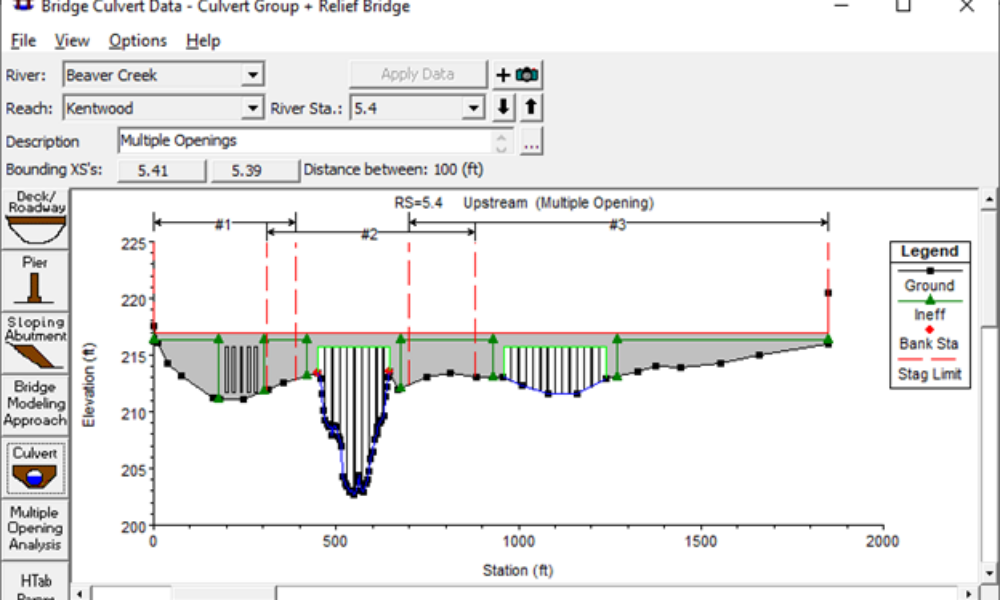
Multiple Opening Analysis
Did you know that if you have a bridge opening and one or more culverts at a single river crossing a Multiple Opening Analysis is required?
There are equations for wave heights and run up as a function of wind speed, reservoir depth, and fetch length. You simply gather some historical wind data that you can assign probabilities to. Assign a wind direction (to be conservative, you can assume the longest fetch length, unless the wind never blows that way), then compute wave heights and run up for different frequencies of wind magnitudes. Which frequency you design to (100-year, 50-year, etc) is up to you and your client.
Here’s a good place to start:
http://140.194.76.129/publications/eng-manuals/em1110-2-1420/c-15.pdf
Here are some other interesting links that might lead to additional information:
http://www.wldelft.nl/cons/area/wds/im/wave-dynamic-structure.pdf
Comments
Curt Jawdy, TVA
on July 25, 2013How about if you are doing operational forecasting?
Chris G.
on July 25, 2013I guess you'd have to make some assumptions based on time of day/month/year to factor into your forecast predictions. But wind-induced waves may be too variable and uncertain to adequately include in a long term forecasting analysis. Just offering a guess, since I don't regularly do operational forecasts. What do you think?
Add Your Comment